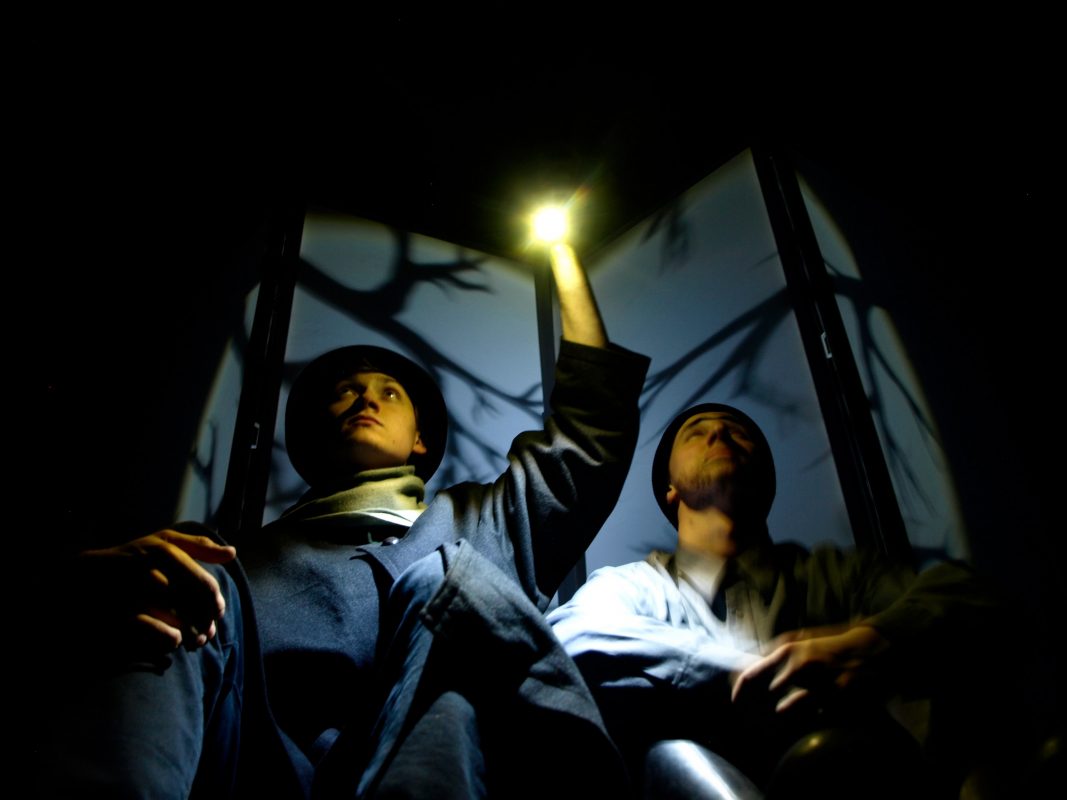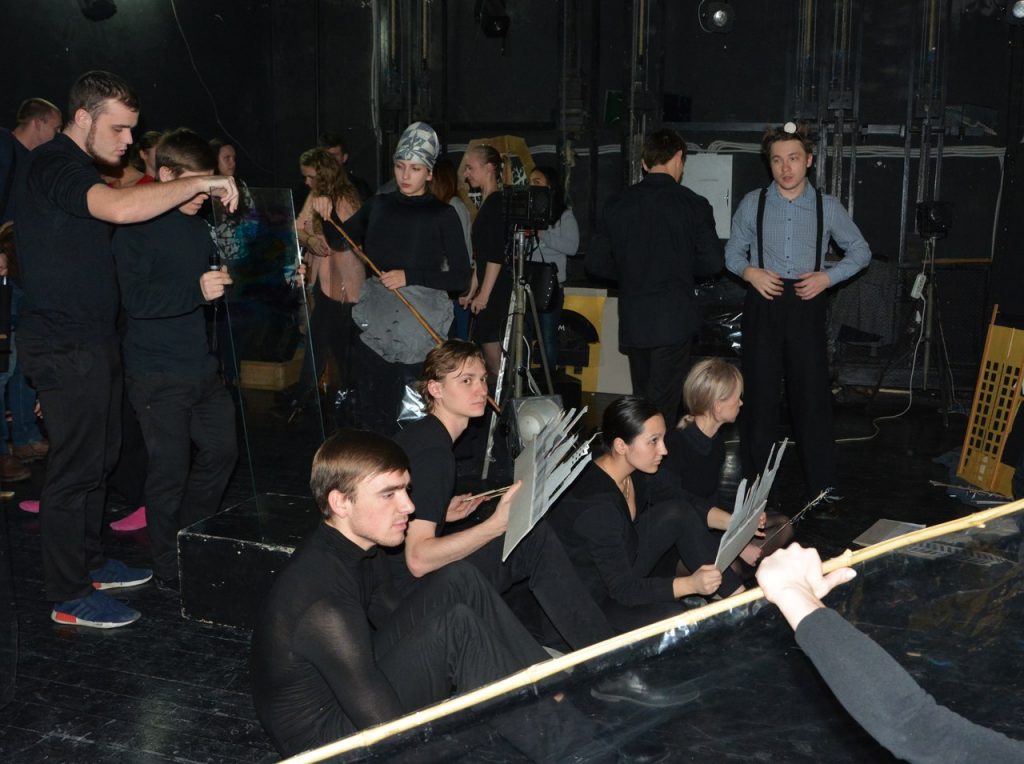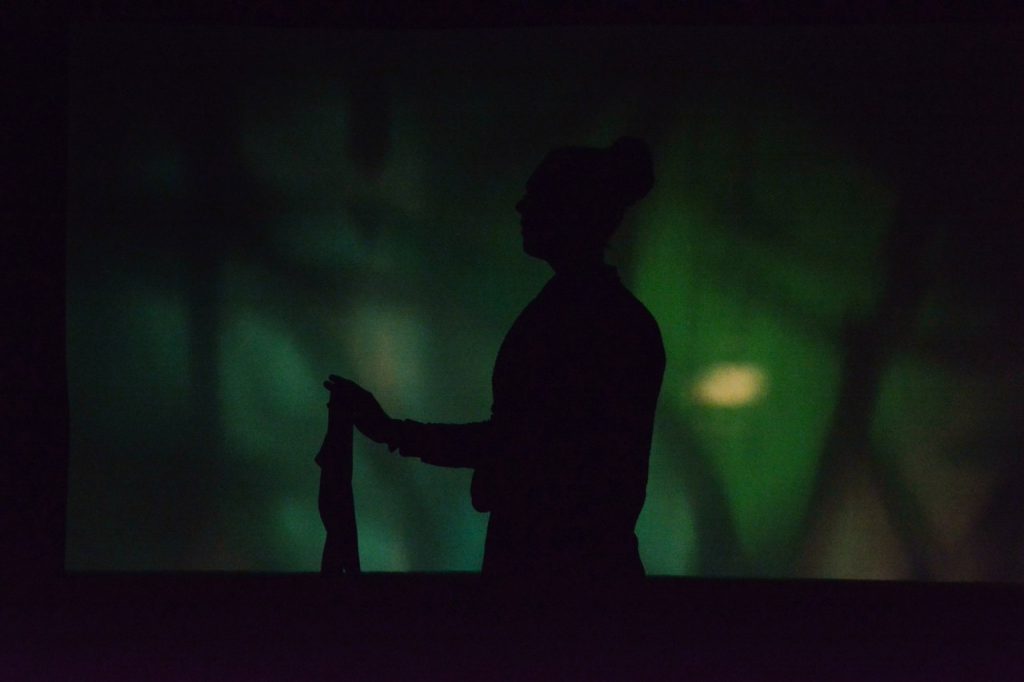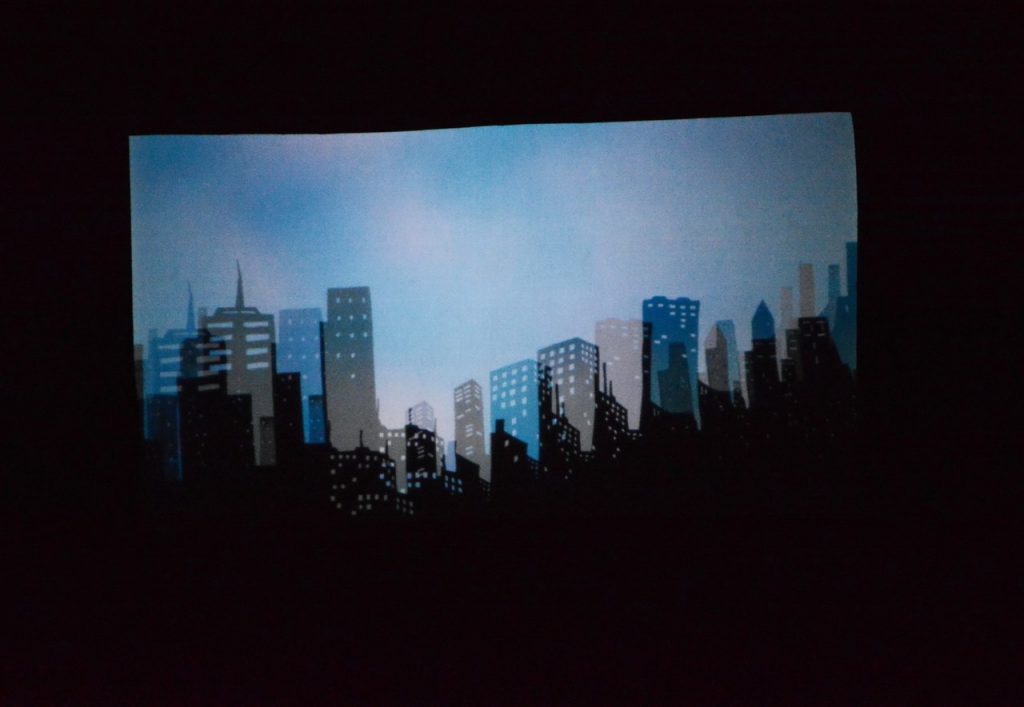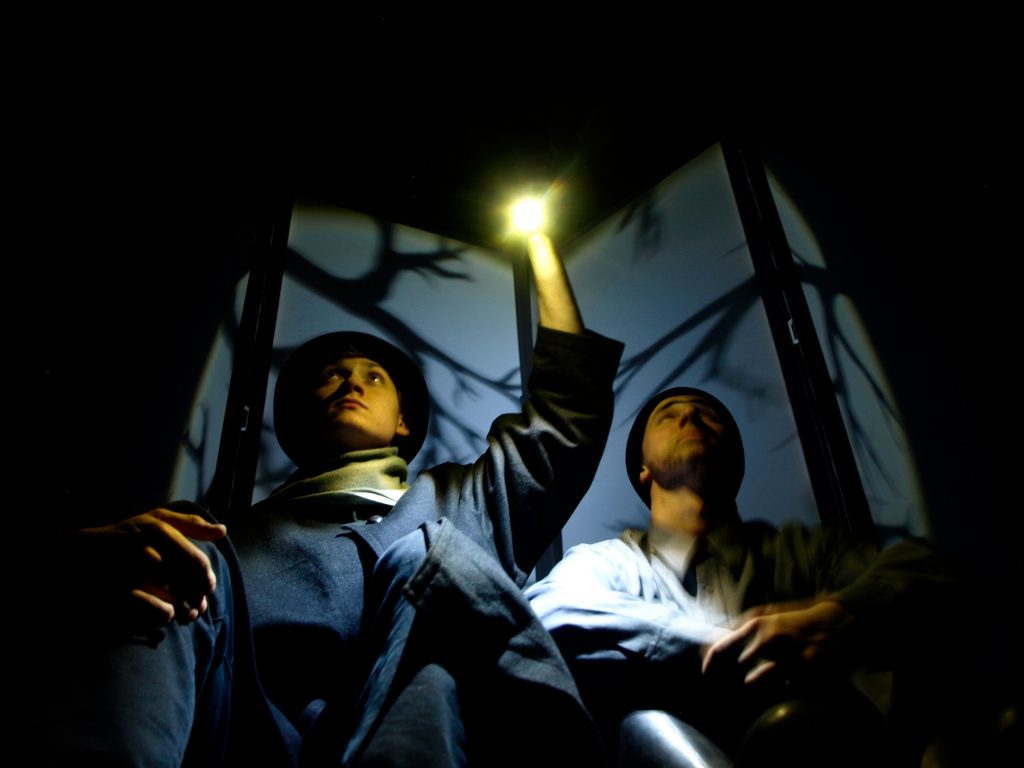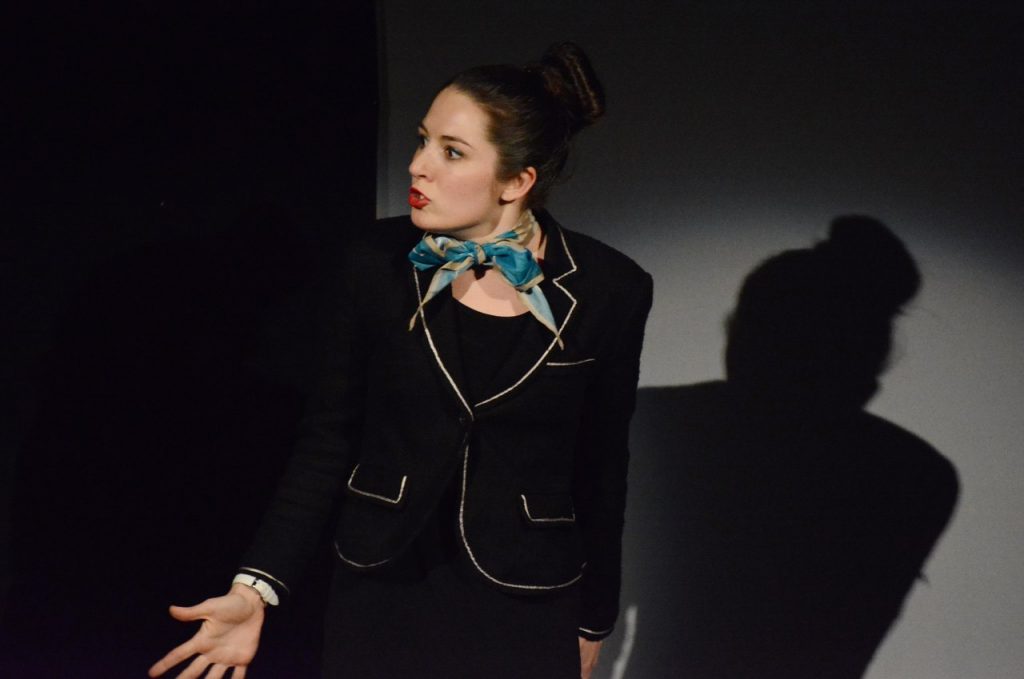Reżyseria / Direction: Natalia Khabarina, Vitalii Novik
Scenografia i kostiumy / Scenography and costumes: Ksenia Zemskaya
Dźwięk / Sound design: Vladislav Ryabtsev
Obsada / Cast: Anastasia Babichenko, Ekaterina Filippova, Nadezhda Kuklina, Ksenia Lvova, Elena Palyanova, Nadezhda Proshina, Ariana Voituk, Ksenia Zemskaya, Roman Boltayev, Grigory Chernov, Artem Churbakov, Aleksei Gorbunov, Vasily Kuralev, Vladislav Ryabtsev, Sergey Sergeyev, Vasily Terendyuskin, Oleg Tsarev
Istnieje świat w środku Twojej duszy…
Samotny człowiek stapia się z innymi w rozmytej codzienności, niosąc w sobie własną poetycką prawdę. Bohater, mijając zwykłych przechodniów, ma jednak nadzieję, że w każdym z nich znajduje się piękna kolorowa dusza. Ale konfrontując się z obojętnością, a nawet gniewnymi atakami napotkanych osób, sam ryzykuje utratę duszy.
Przedstawienie przygotowane w technice cieniowej jest rodzajem przypowieści o człowieku żyjącym w XXI wieku. To od widza zależy, kim będzie ten nieśmiały dziwak. Jaki cel mu przyświeca, kiedy wędruje ulicami Miasta? Czego szuka w zmęczonych oczach mijanych przechodniów? Co oznaczają kolorowe sceny pojawiające się na ekranie? Czy to jego sny? A może to sen współczesnego dziwaka, który próbuje ten szary świat ożywić wrzucając go do wiadra z kolorowymi farbami, i tym samym próbując na jego dnie znaleźć odpowiedź na pytanie: Dlaczego nie możemy latać?
There is a World inside Your soul…
A lonely man immerses himself into the everyday faceless society, holding poetic truth in his mind. The character, faced with ordinary passers-by, is full of hope to see the colourful world in the soul of each of them. But again and again, bumping into the indifference and angry outbursts of the people he meets, he himself runs the risk of losing his own soul.
The play is a kind of parable about the man of the XXI century. The authors solve it in an original way by using the techniques of shadow theatre. It is up to the spectator to decide who this humble weirdo is. What is his aim while he wanders through the streets of the city? What does he seek to find in the tired eyes of passers-by? What are the meanings of colourful scenes that appear on the screen? Are they dreams of the tired common man? Or is it a dream of a modern weirdo, who tries to find the answer to the main question in a bucket of colourful paints? Why can’t we fly?
Język spektaklu / Language of the performance: rosyjski, angielski / Russian, English
60’
Przedstawienie / Performance: Piątek / Friday, 22.06.2018, 20:00 (M) – WPiP
O SZKOLE / ABOUT SCHOOL
Jarosław ROSJA / Yaroslavl RUSSIA
PAŃSTWOWY INSTYTUT TEATRALNY W JAROSŁAWIU
Katedra Teatru Lalek
YAROSLAVL STATE THEATRE INSTITUTE
Puppet Theatre Department
Historia Państwowego Instytutu Teatralnego w Jarosławiu jest ściśle związana z historią Szkoły Teatralnej założonej w 1962 roku z inicjatywy Firsa Efimovicha Shishigina, laureata wielu nagród, dyrektora Akademickiego Teatru Dramatycznego im. F.G. Volkovej. W 1980 roku, szkoła otrzymała status uczelni wyższej i jak wiele podobnych instytucji, nie odcinając się od tradycji, stawia na rozwijanie i poszerzanie praktyk teatralnych. Profesjonalnych umiejętności pod okiem wybitnej kadry pedagogów uczą się tu przyszli aktorzy, lalkarze i reżyserzy.
Przez 35 lat działalności uczelnia wykształciła 2175 artystów. Jej absolwenci to nie tylko aktorzy, ale również reżyserzy teatralni, scenografowie i eksperci w wielu dziedzininach teatru.
The history of the Yaroslavl State Theatre Institute is inextricably linked with the history of the Yaroslavl Theatre School, which was opened in 1962 on the initiative of Firs Efimovich Shishigin, State Prize Laureate of the USSR and the RSFSR, the main director of the Academic Drama Theatre named after F.G. Volkova. In 1980, the school received the status of a higher educational institution, which – like any other – does not break ties with tradition and is deeply and organically justified by scenic practice. Its essence is found in the professional skills of actors, puppeteers and directors that are to be obtained during studies and in the creative and pedagogical talents of theatre teachers. YSTI prepares actors for puppet theatre, drama theatre and movie performances.
During 35 years of School’s activity, around 2175 people have completed the training. Among the graduates there are not only actors, but also directors, stage designers and theatre experts.
